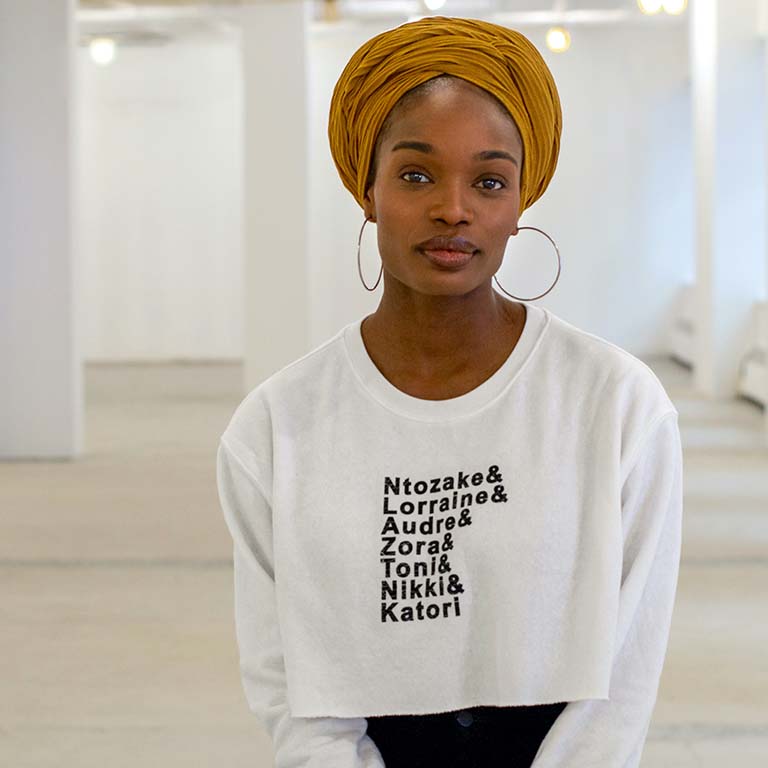I HAVE PULLED MY SHOW, CULLUD WATTAH, FROM VICTORY GARDENS THEATER, EFFECTIVE IMMEDIATELY.
Sometimes we are blessed with being able to choose the time, and the arena, and the manner of our revolution, but more usually we must do battle where we are standing.
― Audre Lorde, Sister Outsider: Essays and Speeches
As a result of the white supremacist capitalist patriarchal values espoused by the Board of Directors at Victory Gardens Theater, I have pulled the production of my show, CULLUD WATTAH, effective immediately. The Board of Directors’ oppressive values were grotesquely displayed through their recent actions, including but not limited to the removal of brilliant, compassionate and radical cultural worker Ken-Matt Martin as Artistic Director; resolute opposition to and dismissal of the arts professionals on staff, Acting Managing Director, Roxanna Conner, and Ken-Matt Martin, as well as acquiring additional property—a capitalist venture that undermines land acknowledgements, offers no path toward indigenous rematriation and strains the institution’s current structural needs.
I stand in unwavering support of the remaining nine staff members of Victory Gardens Theater, its fiercely radical Black leader(s), Roxanna Conner (and Ken-Matt Martin) as well as the immediate past resident artists who resigned in solidarity, all insisting that the three demands the remaining staff has made (the reinstatement of Ken-Matt Martin as Artistic Director, the resignation of the Board of Directors in full, and the peaceful transition of power that enables the theater to continue its work) be met by July 18, 2022.
As a Black radical leftist playwright and womanist cultural-memory worker, I do not shrink from my responsibility to make an incisive, principled decision in alignment with the revolutionary goals of the liberation of Black people, especially Black women, because, as the Combahee River Collective taught us in 1977, “If Black women were free, it would mean that everyone else would have to be free, since our freedom would necessitate the destruction of all systems of oppression.” I recognize that Our liberation necessitates the end of the political-economic systems of capitalism, imperialism and patriarchy not just in the political theater of the U.S. government but also in the Arts & Culture sector generally and the American Theatre specifically, which are direct beneficiaries of this white supremacist patriarchal capitalist nation.
Consequently, my decision to pull CULLUD WATTAH is in service to the wellbeing of Black women on and off stage. In CULLUD WATTAH Marion, a loyal General Motors employee, comes to the edge of her shame after realizing her complicity in the terrors visited upon her family amid the Flint Water Crisis. In the apocalyptic world of the play—of Flint, Michigan even today— it is not the terror of the events themselves that is the greatest horror; it is living in the shame of surviving (or not), of being totally undone by shame and being active participants in the undoing of others. We are not complicit. I am not loyal to institutions; I am committed to the movement and to the communities who name me. The cast of CULLUD WATTAH will not be active participants in the Board of Directors’ agenda. Because of this, the show mustn’t go on. I cannot ask the five Black women actors to do this work amid overlapping real life apocalypses. This is a moment ripe with revolutionary possibility. I cannot allow them to bend to contractual obligations after the Actors’ Equity Association’s failure to protect them. I cannot allow Roxanna Conner, a Black woman, who is feeling the impact of this moment more than anyone, to keep the production going while battling her own abuse from Victory Gardens’ Board of Directors.
For me, dramatic writing is both a sacred archive of Black life and a vibrant portal for imagining liberated Black futures. Performances of my work are opportunities to stage historical redress, audition solutions to interlocking oppressions and to practice the future together. The future is now. The play was dress rehearsal for the battle that met us where we stood: on stage. I pulled CULLUD WATTAH from Victory Gardens Theater so when June Jordan whispers to us from beyond the veil, “What do we do with the scars, those of us who did not die [or quit, or ignore harm, or give up] but still aren’t free?” We will have an answer for her: We organized.
In Loving & Principled Struggle,

Erika Dickerson-Despenza
Playwright, CULLUD WATTAH
